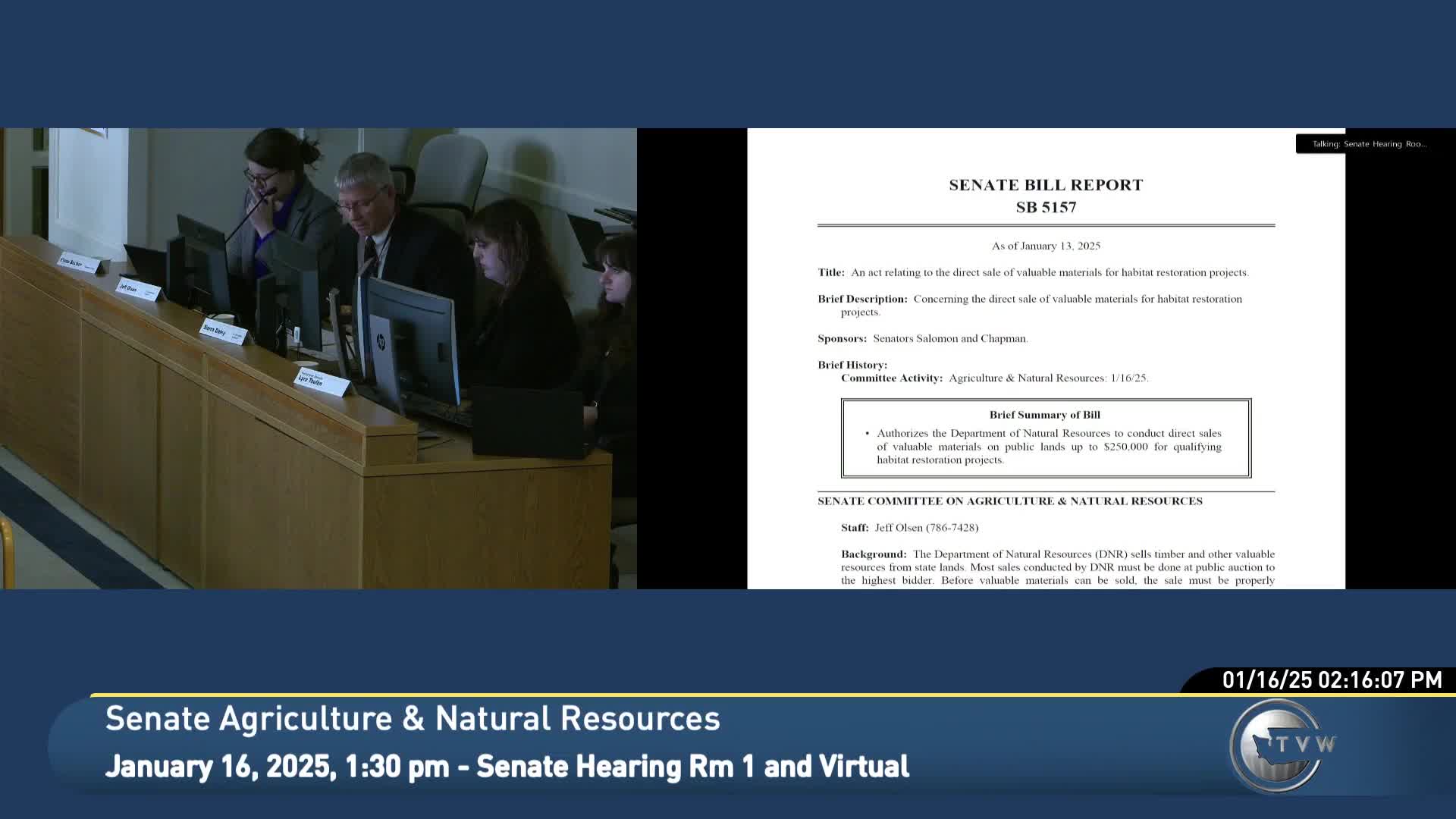Bill would let DNR sell larger quantities of timber and other materials directly to habitat restoration projects
Get AI-powered insights, summaries, and transcripts
Subscribe
Summary
Senate Bill 5157 would allow the Department of Natural Resources to make direct sales of timber and other materials up to $250,000 for qualifying habitat restoration projects, up from the current $25,000 cap for direct sales.
Senate Bill 5157 was the subject of an extended Jan. 16 public hearing in the Senate Agriculture, Water, Natural Resources & Parks Committee. The bill would authorize the Department of Natural Resources (DNR) to conduct direct sales of valuable materials from state lands up to $250,000 when the materials are to be used in qualifying habitat restoration projects.
Under current law, DNR sells most timber and other valuable resources at public auction, but may make direct sales without notice for appraised values of $25,000 or less. Committee staff and DNR witnesses said the larger cap would allow restoration implementers to obtain trees with intact root wads and longer lengths that are difficult to source through auctions, reducing transportation costs and project timelines. The bill conditions direct sales on DNR determinations that the sale is in the best interest of the state or the affected trust, requires purchasers to have all appropriate permits, and directs a report from purchasers describing project use. The bill prohibits resale or remanufacture of materials sold under the authority and allows stockpiling under DNR rule when materials will be used exclusively for eligible projects.
Duane Emmons, Assistant Deputy Supervisor for State Uplands at DNR, told the committee DNR has piloted direct sales to support restoration in Snohomish County and that sourcing large woody debris is often difficult. Emmons said the department seeks a balance that helps restoration while preventing direct sales from becoming a routine alternative to public auctions; he said appraisals and fair‑market valuation will still be used and that proceeds would continue to go to trust beneficiaries.
Restoration practitioners and funders testified in support. Lehi Kalambokidis (testifying for Trout Unlimited) described ecological benefits of large wood and said the material can account for 40–60% of some restoration project costs. Brock Miller of the Recreation and Conservation Office and Jessica Helsley of Wild Salmon Center said easier access to suitable wood would lower costs and logistical hurdles for projects that benefit salmon, fish habitat and climate resilience.
Several commenters urged caution. Ed Bowen (citizen) and representatives of the forest products sector asked for clarity and stronger safeguards to protect trust revenue. Heath Heichler of the American Forest Resource Council and other industry witnesses emphasized DNR’s fiduciary obligation to trust beneficiaries and the importance of accurate appraisals; Heichler noted $250,000 could represent roughly 400,000 board feet in appraised value and highlighted potential market impacts.
DNR staff said they already conduct outreach before field surveys and that the bill’s notification and public comment language may need refinement because it can be difficult to identify all affected owners prior to a survey. Staff stressed that existing forest practice requirements and appraisals would continue to apply.
The committee closed public testimony Jan. 16. A fiscal note was requested but not yet available at the hearing.
